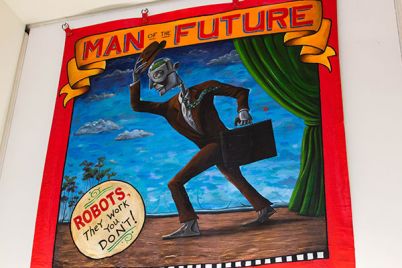
Courtesy | Tribune News Service
By Ivan Flores
Staff Writer
My father’s biochemistry career brought my family to the United States when I was in second grade. I was born in Mexico, but by the time I was in fourth grade, I already spoke and read English better than Spanish. On Saturday mornings, I would get up early to watch “Liberty’s Kids” before the television rules were enforced. It was then that I began to identify more and more as an American. My parents separated soon after that. I was left in the U.S. without a visa. I grew up as an Ann Arborite, celebrating the Fourth of July, going to Top of the Park, and watching Michigan-Ohio State football games. I was told I could become anything I wanted to be. Study, work hard, and go to college, they said. Nothing is ever that simple.
Children 18 and under make up almost 1.8 million of the estimated 11.3 million undocumented immigrants in the United States. According to Educators for Fair Consideration, about 65,000 undocumented students who have lived in the U.S. for at least five years graduate from American high schools every year. Only 7,000-13,000 of them are enrolled in colleges nationwide.
Many of these people were brought to the U.S. at a young age and have grown up with little or no association with the country where they were born. Culturally, they are no different than their peers with American citizenship. However, the circumstances they are raised in create major obstacles for social mobility. Without academic or financial support, most undocumented students can’t access higher education. The few that go on to college must do so without the aid of federal loans or grants. In many states, they have to pay international or out-of-state tuition rates, even if they have completed K-12 education in local schools.
Jorge Luna, a southeast Michigan area social worker, has spent a lot of his career working with the immigrant community in Washtenaw County. He is now a naturalized U.S. citizen, but he was born in a poor and rural indigenous community in the Mexican state of Oaxaca.
“Personally,” Luna said, “I believe that the more educated you are, the better your life will be, with money or without it… I agree we all have potential, but if you have limited resources, you will never get there. That’s one of the things that hits the immigrant community most.”
In 2012, President Barack Obama signed an executive order that provided relief to some young undocumented immigrants. Deferred Action For Childhood Arrivals, known as DACA, granted two-year work permits to individuals who meet certain conditions.
Maria Ibarra-Frayre, 26, was among those who obtained relief under the executive order. She was born in Mexico, but grew up in Dearborn. She has lived in the U.S. for 17 years. With help from her parents and scholarships, she was able to get through her undergrad at the University of Detroit Mercy.
“It was really expensive,” she said. “I worked the whole way through undergrad, but it’s worked out. I’m worried and scared that things could go back to the way they were before I had DACA, especially with my degree… I try not to think about it.”
Ibarra is now a graduate student at the University of Michigan School of Social Work, where she’s studying the health effects of living without documentation. She is also an immigration rights activist.
Some schools, like the University of Michigan, have lowered tuition for undocumented students with DACA, but the cost still makes it inaccessible. And, in the case of U-M, there’s a provision that limits the window of enrollment with in-state tuition to 28 months after graduation from high school. Washtenaw Community College offers tuition breaks for students with DACA. However, during the 2016 winter semester, only eight such students were enrolled for credit classes at WCC.
The fundamental problem is that America’s immigration system is broken. There is no path through hard work or education to citizenship, or even permanent residency, for millions of people who have grown up as Americans and have no other home. Many young undocumented immigrants wish to serve in the military or go to college to earn the right to become Americans. But we are not allowed to enlist, and we are not able to enroll. We were told we could become anything we wanted to be. They didn’t tell us “American” wasn’t on the list.


